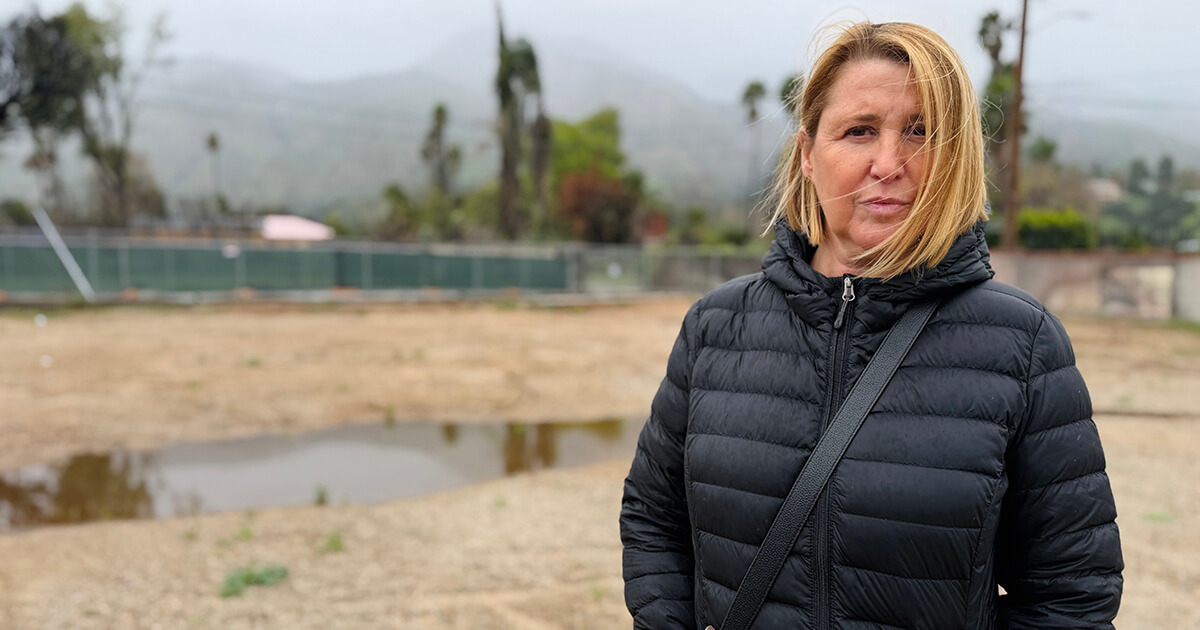Forward 50
ERIC CANTOR
His unique position as the only Jewish Republican in the House of Representatives and a senior member of the House leadership has turned the 41-year-old Virginia congressman into an important “go-to” person for Washington Jewish activists. As the fourth in command in the House majority leadership and as a member of the Ways and Means Committee, Cantor has immense influence over the chamber’s legislative agenda. As the House veers further to the right in the coming years, the third-term congressman will become even more instrumental as an address for the Jewish community’s liberal-leaning lobbyists. An active Conservative Jew, Cantor is also a staunch political conservative: Last year he scored five out of 100 on the report card of the liberal Americans for Democratic Action and 88 on the American Conservative Union’s scale. Within the GOP he’s viewed as a rising star. When he was appointed chief deputy majority whip of the House two years ago, a position that was several sizes larger than his seniority, Washington insiders said it was a part of the Republicans’ aggressive drive to attract young Jews. But Cantor, who formerly spent nine years in the Virginia House of Delegates, “has risen to the occasion,” according to an official with a major Jewish organization in Washington, “and has proven that he is indeed a professional politician.”
DOUGLAS FEITH
There’s probably no one in the Bush administration to whom victory this month smelled sweeter than Douglas Feith, 51, undersecretary of defense for policy. A charter member of the neoconservative circle that helped shape Iraq policy in the Bush Pentagon, Feith has been, with Paul Wolfowitz and Richard Perle, the object of worldwide vilification, accused of leading a Jewish clique that dragged America into war for Israel’s benefit. Feith has arguably had the worst of it; his Office of Special Plans took heat for faulty intelligence, and one of his aides was fingered this summer for passing documents to Israel. And, unlike Wolfowitz and Perle, Feith actually does have a deep, life-long involvement with Zionist causes. His father, Dalck Feith, was a member of Menachem Begin’s militant Betar youth movement in pre-World War II Poland and fought with the Irgun in British-run Palestine before settling in Philadelphia, where he’s a prominent businessman and philanthropist. Douglas Feith, a Harvard graduate, joined Ronald Reagan’s National Security Council in 1981 and shuttled between the NSC and the Pentagon until 1993, when the Clinton election returned him to private life. A father of four, he’s an active synagogue-goer and an officer of the Charles E. Smith Community Day School. On Israel affairs, Feith never has wandered far from the not-one-inch Zionism of his youth. He’s been honored by such hard-line groups as the Zionist Organization of America and Americans for a Safe Israel. His scrappy posture on the global stage has earned a brace of enemies for him and the administration he serves, but he appears ready to keep fighting.
NITA LOWEY
The 67-year-old New York Democrat could emerge in the coming years as a moral compass for her injured party, which is seeking to redefine itself on “values” following this month’s failed attempt to recapture the White House and both houses of Congress. An eight-term House veteran, she’s been one of the main engines of pro-Israel activity on Capitol Hill, taking the lead in foreign aid and initiating pro-Israel and pro-peace resolutions and initiatives. A veteran defender of abortion rights, women’s rights and minority rights, she’s also become deeply involved in environmental issues and in homeland security, along with health care, medical research, education and gun control. Entering her ninth term, she will take on new importance as the dean of what is now a seven-member delegation of Jewish women, with the addition of newly elected Representatives Allyson Schwartz of Pennsylvania and Debbie Wasserman Schultz of Florida. During her last campaign, Lowey was castigated by her opponent for “liberal orthodoxy,” but it didn’t bother her. From her longtime perch as the ranking Democrat on the House Appropriations subcommittee in charge of foreign aid, she’ll be a key voice in the next two years on policies — international family planning, fighting AIDS and hunger in Africa — that could make or break America’s image abroad.
ARLEN SPECTER
At the start of the year, this crusty 74-year-old liberal Republican senator was starting to look like an endangered species. But the cagey Pennsylvanian survived spirited challenges in the primary and general elections to secure a fifth term. Now he’s taking center stage in the fight over the federal judiciary and abortion rights, after triggering a firestorm last week by noting that Senate Democrats would likely filibuster any Supreme Court nominee bent on overturning Roe v. Wade. Christian conservative activists are scrambling to block Specter, who is pro-choice and supports embryonic stem cell research, from becoming chairman of the Senate Judiciary Committee, the body that approves judges before they go to the Senate floor for confirmation. The White House says it takes Specter at his word when he promises to give all nominees a prompt hearing and quick vote, but conservative activists still remember his role in sinking the Supreme Court nomination of Robert Bork 17 years ago. They also remember his quixotic presidential bid in 1996, which focused on protecting abortion rights and strict Church-State separation and looked to some observers like a thinly veiled GOP version of Jewish liberalism. Specter’s maverick streak extends to Middle East issues — while supportive of Israel, he’s been a frequent visitor to Syria and is trying to improve Iranian-American relations. Both at home and abroad, Specter’s voice and his vote could play a key role on several policy fronts. Not bad for a nearly extinct political dinosaur.
ROBERT WEXLER
Having handily won reelection this month to a fifth term as a Democratic congressman from Boca Raton, Fla., Robert Wexler, 43, appears likely to become one of his party’s top strategists in mapping recovery from its 2004 debacle. A tradition-minded Jew from one of the nation’s most heavily Jewish districts, he took the lead in Democratic efforts this year to fight questionable voter registration practices, showing the legal skills that made him one of former President Clinton’s chief advocates during the House impeachment debate. In the past term he formally entered the House leadership, becoming assistant minority whip and ranking Democrat on the European affairs subcommittee. He has made foreign affairs his top passion; his House Web site lists “Israel” and “Anti-Semitism” among his top 12 specialty issues, along with Medicare and the environment. He was one of two House members to participate in a rally in the Hague this year to protest the world court hearings on Israel’s West Bank security fence. Passionate about Israel but liberal on domestic affairs, he scored 95 out of 100 from the liberal Americans for Democratic Action, and Jewish lobbyists in Washington expect him to become a “key leader” in congressional pro-Israel action for years to come.
PAUL WOLFOWITZ
Rumors are rampant that Deputy Defense Secretary Paul Wolfowitz, 61, is set for a promotion, following President Bush’s victory earlier this month. Whether Wolfowitz replaces Donald Rumsfeld as Pentagon chief or moves to the White House to become national security adviser, any vertical move will be widely interpreted as a vote of confidence for the ideological architect of the Iraq war and in his vision of a democratic Middle East. Often miscast in the media as a Likud-style Middle East hawk, Wolfowitz is the product of a liberal upbringing, and his world view seems to borrow more from Woodrow Wilson than from Ariel Sharon. He has voiced greater concern for Palestinian rights than for Jewish settlements in the West Bank and Gaza. The next few years will go a long way toward proving whether his policies were the catalyst for an Israeli-Palestinian peace deal and democracy in the Middle East or left America bogged down in a bloody quagmire and plunged the region into an era of unending chaos.















